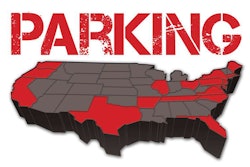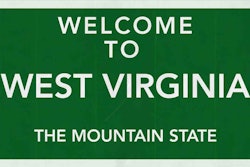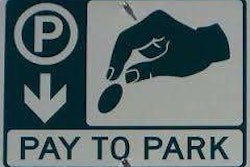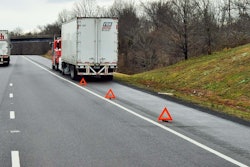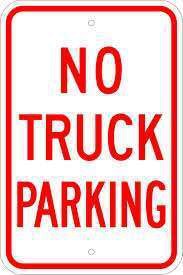
While it might be far from the shenanigans that went on in North Carolina last year, there’s an all-too-familiar scenario playing out in Lackawanna County in Pennsylvania (home to Scranton), through which truckers on I-81 roll:
**Truck parking pickings are slim around the Dunmore area specifically, near the center of the county, though areas south and north do have a stop or two available.
**Dunmore residents call state police to complain about trucks parked on ramps.
**According to the local ABC News affiliate, police issue news release warning truckers parked on ramps that fines of $50 or more would be issued.
**State police increase patrols.
(You can read the original ABC story about the situation there at this link.)
Pennsylvania ranks high in Overdrive‘s worst states for truck parking analysis (No. 17, where No. 1 is the worst), based on our own surveying of readers as well as data from the federal Jason’s Law parking study, so the profusion of ramp parking in some areas is probably no surprise to you. And it ought not be much of a surprise to officials in the state, either.
Nonetheless, there’s another aspect to this story — it has the sort of ending that, in some ways, is itself getting pretty familiar as the heat has been turned up on the need for adequate, safe parking over the past several years.
“Usually, it’s when the sun goes down. I try to find a place before the sun goes down, and after that, it’s really playing the lottery.” –Trucker David Realffe, who told ABC he’s been fortunate and hasn’t had to park on a ramp

The local affiliate followed its story on residents’ complaints about ramp parking and the state police’s official warning shortly with one that explored the issue rather realistically from the trucker’s perspective, as evidenced by the quote from trucker Realffe above. Call me overly optimistic if you will, but it’s something I feel like I’ve seen happening more often of late with these kinds of stories. After state or local police react to complaints, from wherever they come, the “other side of the pancake,” as my colleague Wendy Parker is fond of saying, becomes patently obvious and gets its due consideration.
Find evidence in the long-running mainstream press looks into North Carolina’s stepped up ramp-parking enforcement program, among other examples. While it’s clear the general public has a long way to go toward understanding the parking issue to the point where meaningful change in NIMBY attitudes around parking will occur, it’s also clear to me that the tide is turning.
What’s your view?
At once, I was disheartened to hear that the National Coalition on Truck Parking was in some ways limiting the trucking public’s participation in its work on the truck parking issue. Per this story from the MATS parking session last week, the National Coalition will hold four workshops this year, one of them at Owner-Operator Independent Drivers Association headquarters in Missouri, to work on solutions to the truck parking crisis, as I’d reported before, but the “workshop attendees will be sourced through partnerships” with organizations, i.e. not open to the public necessarily. Those partnership organizations, of course, include OOIDA, but as reader Hal Kiah noted under the story linked above, “Does the FHWA have a link or other access where those with reasonable ideas or suggestions can give their input to the issue as well? This way, the FHWA will have access to more ideas that could be of viable interest in alleviating the truck parking shortage.”
I concur wholly. We’ve reached out to FHWA about it — stay tuned for updates.
UPDATE: Short answer on online participation: Probably not or, at best, not sure.
Asked about the potential for online participation in the workshops, Freight Program Specialist Tom Kearney emphasized the FHWA and parking coalition “had not yet devised our approach for handling registrations at each of the Workshops” and that OOIDA is indeed “involved in soliciting participants for each of the Workshops.”
Best bet for participation might be to express your interest directly to the association.

